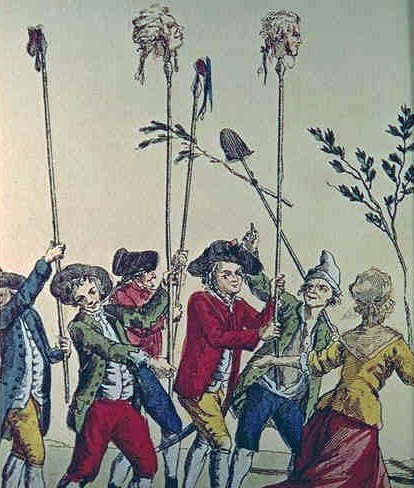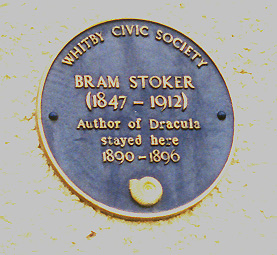 |
| Image 1: Hamilton Musical |
"The issue on the table: France is on the verge of war with England
And do we provide aid and our troops to our French allies or do we stay out of it?
If we try to fight in every revolution in the world, we never stop
Where do we draw the line?
We signed a treaty with a King whose head is now in a basket
Would you like to take it out and ask it?
“Should we honor our treaty, King Louis’ head?”
“Uh… do whatever you want, I’m super dead.”" - Hamilton soundtrack
Recently I discovered the Hamilton musical soundtrack. Since then, it is almost all I listen to! After actively learning about the American and French Revolutions through the Hamilton musical and other sources, I believe that if there is anything we learn when comparing the American and French Revolutions, it is that revolutions have many faces! |
| Image 2: French rioters with heads of political leaders on pikes |
Independence Day in America celebrates a day that our leaders signed a document declaring independence. On the other hand, Independence Day in France celebrates the day that mobs attacked Bastille prison and paraded through the streets with the heads of the mayor of Paris and the governor of Bastille on pikes. Of course both revolutions involved a lot of violence, but the structure and organization of the violence are vastly different. While the American revolution was led by specific leaders and had defined goals and plans, the French Revolution was driven by rioting peoples who chopped off the heads of anyone they thought was associated with their oppressors.
But regardless of the differences in structure of these revolutions, one thing they share in common is that both were pushed forward by Enlightenment ideals. "Liberty, equality, and fraternity", which was the motto of the French revolution, perfectly exemplifies the principal ideal of the enlightenment, which is that all men (and women) are born free and equal in rights. The Americans and French fought against oppression of their human rights. They revolted because their laws did not equally favor all citizens under their current governments. The Americans and French went about their revolutions in different ways, but enlightenment ideals are interwoven through all of the actions taken in both wars.
Image 1: https://www.google.com/search?q=hamilton+musical&rlz=1C1CHBF_enUS767US767&source=lnms&tbm=isch&sa=X&ved=0ahUKEwiv76OY4pXeAhUum-AKHYUmApkQ_AUIECgD&biw=1242&bih=569#imgrc=puu8nbrr5oVHGM:
Image 2: https://www.google.com/search?rlz=1C1CHBF_enUS767US767&biw=1242&bih=569&tbm=isch&sa=1&ei=KITLW4nzK8K4ggfrqYqQAw&q=french+head+on+pike&oq=french+head+on+pike&gs_l=img.3..0i8i30.19259.22581..22718...0.0..0.156.2595.1j21......1....1..gws-wiz-img.......0j0i67j0i30j0i5i30.0FZDixPXlrQ#imgrc=ZDOUWwDGwQowpM:

















